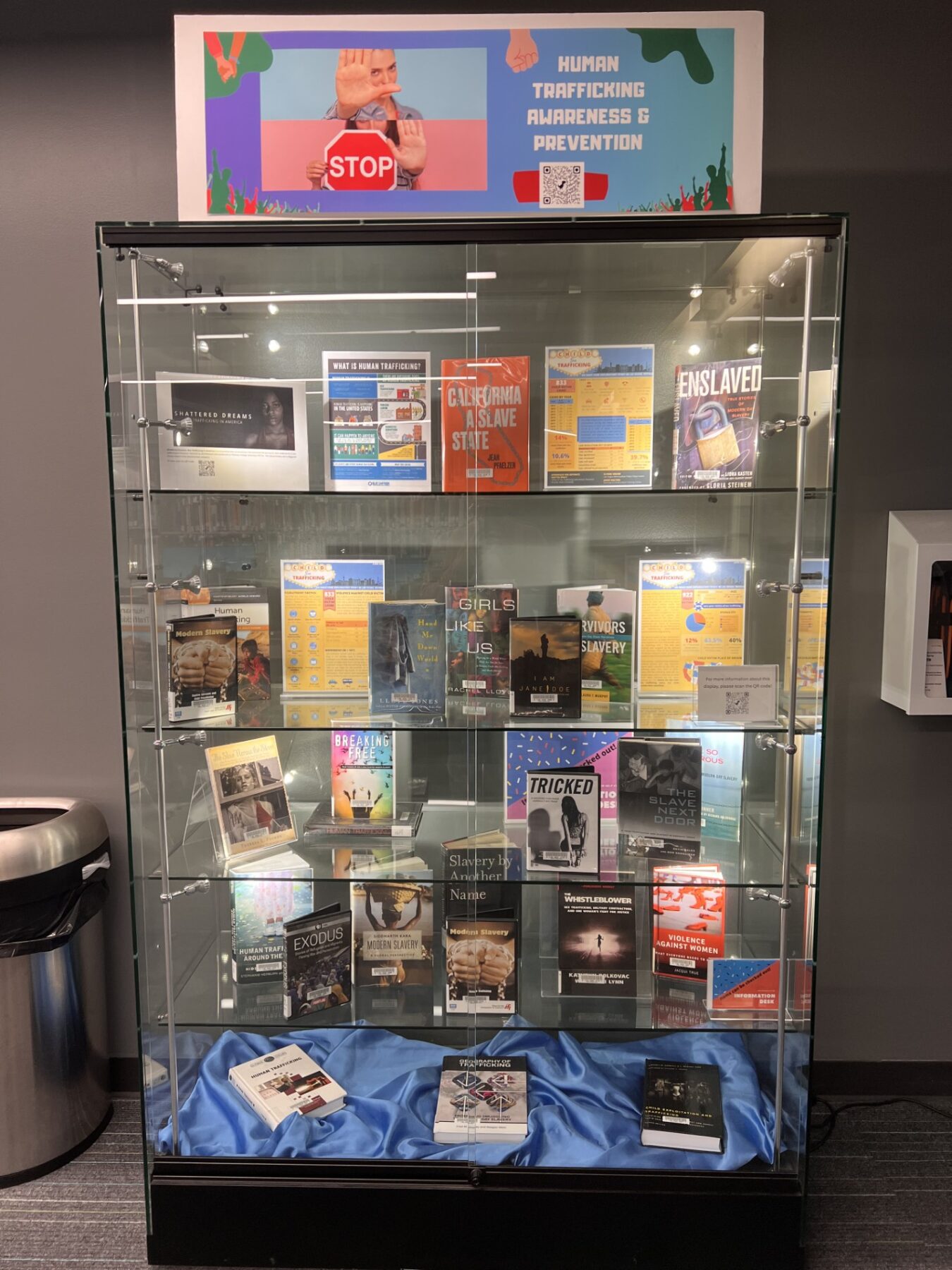Although National Human Trafficking Prevention Month is recognized in January, our commitment to this issue must extend well beyond a single month. Human trafficking is a pervasive crime that requires continuous awareness, education, and action throughout the year. This observance serves as a vital reminder to bring to light the realities of trafficking and to strengthen our efforts to combat it every day. As an institution, we affirm the critical importance of addressing this issue within our own communities.
The Impact of Human Trafficking
Human trafficking is a widespread violation of human rights that affects millions worldwide, including within our own communities. It involves the exploitation of individuals through force, fraud, or coercion for purposes such as forced labor, sexual exploitation, and other forms of abuse. Nationally, thousands of cases are reported each year, but many go undetected, leaving victims without the support they desperately need.
Closer to home, trafficking can occur in plain sight, often disguised within industries such as hospitality, agriculture, or domestic work. Survivors may endure profound physical, emotional, and psychological trauma, with long-lasting effects on their well-being and our society as a whole.
Recognizing the Signs
Awareness is a powerful tool in the fight against human trafficking. Human trafficking often follows a deliberate and manipulative pattern designed to control and exploit individuals. Recognizing the early warning signs can help prevent victimization and support those at risk:
- Luring: Traffickers may initiate contact online or in person by forming a relationship with the intention of exploiting trust.
- Grooming: They may gain control by identifying and fulfilling unmet needs—often through flattery, attention, or gifts.
- Isolation: Victims are gradually distanced from family and friends, creating dependency on the trafficker.
- Manipulation & Coercion: Mixed messages, guilt-tripping (“you owe me”), or threats are used to pressure the victim into compliance.
- Exploitation: Victims are forced into ongoing participation in commercial sex acts or labor, while traffickers take control of their earnings and freedom
These signs may not always mean trafficking is occurring but understanding them can make a critical difference in identifying and supporting potential victims.
A Year-Round Commitment to Preventing Human Trafficking
During fall 2025, all restrooms across the Palomar Community College District will start to display human trafficking awareness posters, which include a call to action, resource hotlines, and contact information for immediate assistance.
Resources
At Palomar, we recognize that student success is strengthened when support extends beyond the classroom. By partnering with community organizations, we are able to connect students with a broad network of resources that address academic, personal, and social needs.
Here are a few of our community partners:
- Center for Community Solutions
- Truecare
- One Safe Place
- Vista Community Clinic
- North County LGBTQ Resource Center
Palomar Partners and Resources:
- Palomar’s Behavioral Health and Counseling Services
- Palomar Dreamer Success Program in collaboration with Jewish Family Services and Higher Education Legal Services
- Review the Palomar Library Research Guide
- Watch Palomar College Television’s documentary, Shattered Dreams: Sex Trafficking in America

Visit the Palomar Human Trafficking Prevention Library Display – 4th Floor. Items within the display case can be checked out. Please ask for assistance at the information desk.
How You Can Help
Each of us has a role to play in preventing human trafficking. Here are small steps you can take to make an impact:
- Educate Yourself: Learn more about human trafficking and its prevalence by visiting trusted resources such as:
- Polaris Project
- National Human Trafficking Hotline
- GenerateHope
- Attend a workshop/event
- Participate in an online learning opportunity
- California Human Trafficking – The “California Human Trafficking” video course meant to describe what human trafficking is, how to recognize the signs of potential victims, and how to respond effectively. This course comprises four lessons that help you become more aware of human trafficking and child exploitation that might be occurring in the hospitality industry. This 31-minute training is geared toward hotel and motel employees but provides useful information about human trafficking and the signs to be aware of.
- Spread Awareness: Share information with friends, family, and colleagues to help expand knowledge about this issue.
- Report Suspicious Activity: If you suspect trafficking, contact the National Human Trafficking Hotline at 1-888-373-7888 or text “HELP” to 233733. Or you can call the California Coalition to Abolish Slavery and Trafficking (CAST) at 1-888-539-2373. Your call could save a life.

